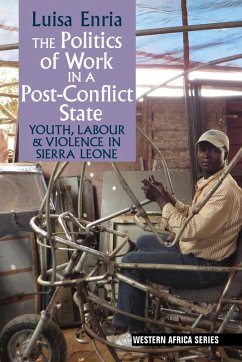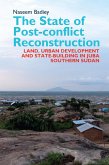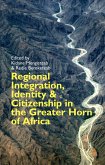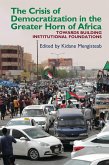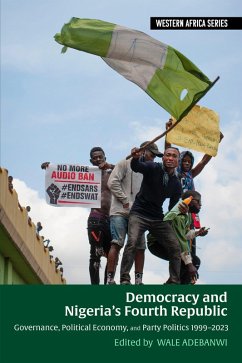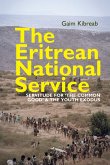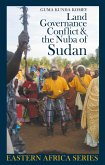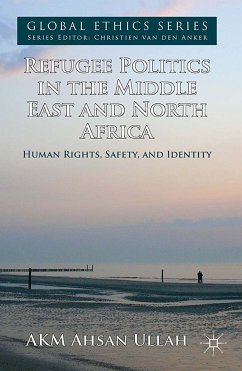A detailed examination of the nature of post-conflict society and youth violence, with important implications for peacebuilding and post-conflict recovery.
High youth unemployment is seen as a major issue across Africa and globally, not solely as a source of concern for economic development, but as a threat to social stability and a challenge to fragile peace. In countries emerging from civil war in particular, it is identified as a key indicator for likelihood of relapse. But what do we really know about how lack of work shapes political identities and motivates youth violence? Drawing on rich empirical dataabout young people on the margins of the informal economy in Sierra Leone's capital, Freetown, in the wake of its civil war (1991-2002), this book moves beyond reductive portrayals of unemployed youth as "ticking bombs" to show how labour market experiences influence them towards political mobilisation. The author argues that violence is not inherent to unemployment, but that the impact of joblessness on political activism is mediated by social factors and the specific nature of the post-war political economy. For Freetown's youth, labour market exclusion is seen to have implications for social status, identities and social relations, ultimately keeping them in exploitative patterns of dependence. This in turn shapes their political subjectivities and claims on the state, and structures the opportunities and constraints to their collective action.
Luisa Enria is a Lecturer in International Development at the University of Bath, where she also holds an ESRC Future Research Leaders Fellowship for the project "States of Emergency: Citizenship in Times of Crisis in Sierra Leone".
High youth unemployment is seen as a major issue across Africa and globally, not solely as a source of concern for economic development, but as a threat to social stability and a challenge to fragile peace. In countries emerging from civil war in particular, it is identified as a key indicator for likelihood of relapse. But what do we really know about how lack of work shapes political identities and motivates youth violence? Drawing on rich empirical dataabout young people on the margins of the informal economy in Sierra Leone's capital, Freetown, in the wake of its civil war (1991-2002), this book moves beyond reductive portrayals of unemployed youth as "ticking bombs" to show how labour market experiences influence them towards political mobilisation. The author argues that violence is not inherent to unemployment, but that the impact of joblessness on political activism is mediated by social factors and the specific nature of the post-war political economy. For Freetown's youth, labour market exclusion is seen to have implications for social status, identities and social relations, ultimately keeping them in exploitative patterns of dependence. This in turn shapes their political subjectivities and claims on the state, and structures the opportunities and constraints to their collective action.
Luisa Enria is a Lecturer in International Development at the University of Bath, where she also holds an ESRC Future Research Leaders Fellowship for the project "States of Emergency: Citizenship in Times of Crisis in Sierra Leone".
Dieser Download kann aus rechtlichen Gründen nur mit Rechnungsadresse in A, D ausgeliefert werden.

